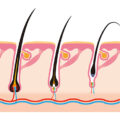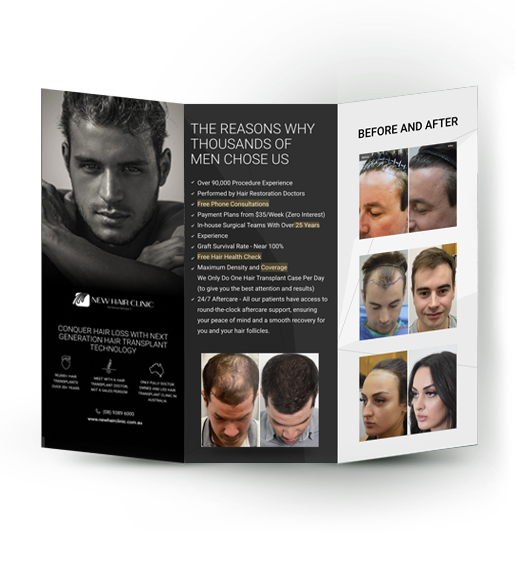Last updated on June 18, 2024
[starbox]
Longing for your hair to grow faster can feel like an eternity. If you’ve caught yourself typing “how to accelerate hair growth” into Google during the late hours of the night, you’ve landed in the right spot. Whether it’s a regrettable haircut, a desire for a fresh style, or simply a wish for fuller hair, we understand!
Regrettably, no enchanted elixirs exist to magically hasten growth despite the claims made by numerous shampoo and vitamin companies.
Typically, hair grows around 0.5 to 1.6 centimetres per month. The slight variance primarily owes itself to genetics, while age and overall health also exert some influence.
However, fear not. While we can’t perform miracles to expedite growth, we can certainly nurture our hair for robust health and longevity.
The Process of Hair Growth
An individual hair’s growth cycle spans from 2 to 6 years. Consequently, the more hairs that maintain their health throughout their life cycle, the denser and longer your hair can become.
The three distinct stages of hair growth are:
- Anagen – Growth Phase (2-6 years)
- Catagen – Transition Phase (10 days)
- Telogen – Resting Phase (3 months)
In relation to hair loss, shedding approximately 100-150 hairs daily is normal. Hair naturally falls out when its life cycle concludes, and the follicle enters a resting phase lasting around three months. At any given moment, about 10-15% of scalp hairs are in this resting phase.
For individuals predisposed to hereditary hair loss, hair follicles start to shrink, spending more time in the resting phase and eventually losing their ability to sustain hair growth.
Enhancing Hair Growth: 5 Approaches
1. The Right Products
Just as soil nurtures plants, a healthy scalp supports hair growth. Your choice of shampoo and conditioner significantly influences scalp health, acting as the foundation for hair growth.
Selecting products tailored to your hair type and scalp requirements is vital. Dry and coarse hair benefits from moisturising products, while fine hair benefits from volumising formulas. Opt for soothing products if you have a sensitive scalp.
Our NHC range is designed by doctors to encourage hair growth while maintaining a healthy scalp. Check out our range online.
2. Prescription Treatments
Two active ingredients have been proven to enhance density and stimulate new growth. These treatments are mainly employed by individuals facing hereditary hair loss. They can be taken orally (capsule) or applied topically (spray).
Although these treatments take 4-6 months to yield results, consistent use has shown substantial improvements in hair count. While we can’t provide their names here, you can acquire further details by scheduling an online consultation with a specialised hair loss doctor.
3. Nutritional Support
Deficiencies in essential nutrients can contribute to excessive hair loss and hinder growth. While a varied diet suffices for most individuals, a daily supplement ensures that your hair receives all the nutrients necessary for growth.
4. Protein Intake
If you’re experiencing hair shedding, particularly if you’re following a vegan or vegetarian diet, it’s advisable to assess your protein intake. Protein is the foundational element of hair, as hair strands consist of a robust protein called keratin. Excellent sources of protein include meat, fish, eggs, beans, and nuts.
5. PRP Therapy
Certain studies suggest that platelet-rich plasma therapy (PRP) could deter hair loss and stimulate growth. In PRP, a doctor withdraws your blood, separates the plasma, and reinjects it into your scalp to encourage follicle activity.
Actions to Avoid to Foster Hair Growth
1. Heat Styling
We’re all aware that heat styling can damage hair. It depletes hair of moisture, rendering it fragile and prone to breakage. Reduce heat styling, lower the temperature on your styling tools, and use a heat protectant to minimise harm.
2. Hair Colouring
While growing out your hair, it’s prudent to abstain from bleach, chemicals, and hair dyes, as they can inflict considerable harm to hair strands. Colouring your hair might lead to more frequent trims and, consequently, reduced length.
3. Tight Hairstyles
High ponytails, tight buns, braids, and extensions can exert tension on hair, leading to premature strand loss. Opt for wearing your hair down or styled in a loose braid to provide your hair strands with some relief.
4. Stress
Stress can trigger a form of hair loss known as Telogen Effluvium, characterised by abrupt and excessive shedding approximately six months after a stressful event. To mitigate stress or recover from it, prioritise adequate sleep and exercise alongside calming practices like meditation and yoga.
5. Restrictive Diets
Crash diets or extreme dietary restrictions may deprive your body of the nutrients essential for hair growth. Hair is non-essential for human survival, often one of the first functions curtailed in resource-scarce scenarios. Sudden, drastic weight loss can also initiate hair loss.
Seek Expert Advice
If hair loss concerns you, consulting a professional is the wisest course of action. If you’re uncertain about the underlying cause of your hair loss, consider scheduling an appointment with a trichologist or dermatologist. For those confident that hereditary hair loss is the issue, a hair transplant consultation or exploration of prescription treatment is recommended.








